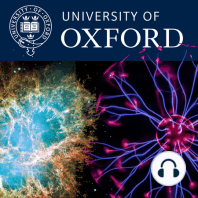41 min listen

How computers have changed the way we do physics - Chaos and climate change
How computers have changed the way we do physics - Chaos and climate change
ratings:
Length:
52 minutes
Released:
Feb 11, 2016
Format:
Podcast episode
Description
The power of available computers has now grown exponentially for many decades. The ability to discover numerically the implications of equations and models has opened our eyes to previously hidden aspects of physics. In this lecture, Myles Allen addressed how computers have transformed our understanding of the role of chaos and exponential error growth in weather forecasting; and our understanding of how climate change is impacting regional weather. He showed how research in Oxford Physics, made possible by high-end computing, is demonstrating the crucial role of eddies in controlling ocean climate; and how the probability of extreme weather events may respond to rising greenhouse gas concentrations. He concluded by throwing out a more controversial suggestion that super-computers haven’t really contributed very much to the problem of predicting century-timescale changes in global average temperature, however much they may have contributed to understanding the regional implications of large-scale warming.
Released:
Feb 11, 2016
Format:
Podcast episode
Titles in the series (86)
Cosmology from General Relativity: Members of the Rudolf Peierls Centre for Theoretical Physics hosted the eighth Saturday Morning of Theoretical Physics on 19 September 2015. Talk 3 by Pedro Ferreira. by Theoretical Physics - From Outer Space to Plasma